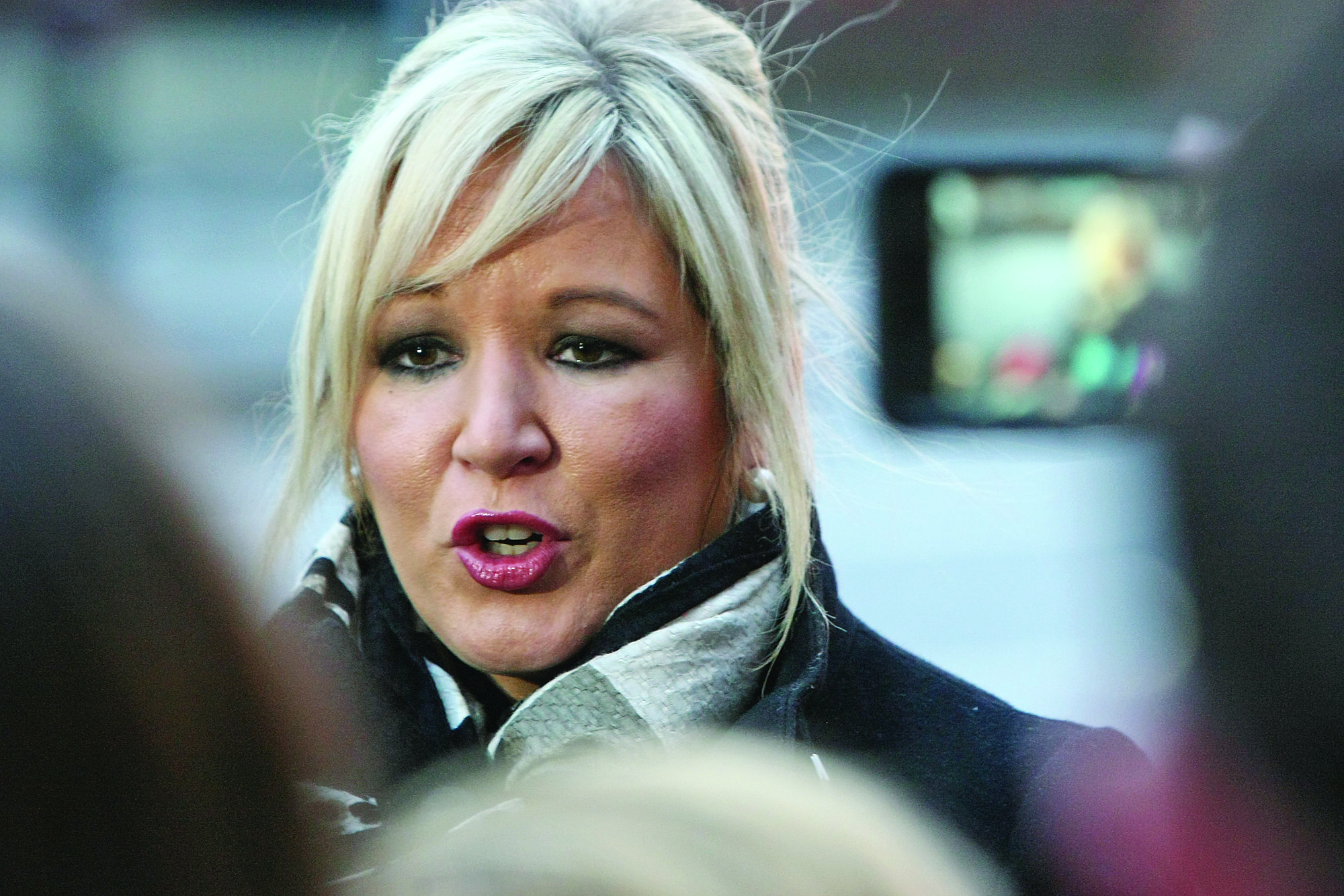SOME parties have all the luck. Ask any member of the DUP. Or Sinn Féin.
The DUP are thigh-deep in a poo-mess of their own making. They have refused to go back into Stormont for reasons best known to themselves, but many nationalists suspect it has to do with the fact that they’d be Deputy First Minister, with Sinn Féin’s Michelle O’Neill as First Minister. The DUP deny that this is the case, but they sound a bit unconvincing. We all know that First and Deputy First have equal powers, but it still involves swallowing hard when you slip from First to Deputy First. Especially when your party has always attached such importance to being First.

The official reason the DUP give for staying out of Stormont is that border the British put in the Irish Sea. Spurred on by Jim Allister, the DUP keep asking: “How can we accept a border within our country?” Which many of us would agree with, except we’d be talking about a different border and a different country. And yes, an internal border can be a problem, but if implementing it will give you unparalleled access to the UK and the EU single market, you’d have to be some sort of masochist to turn the opportunity down.
Yet that’s what the DUP have been doing for 18 months. They know they should go back into Stormont, they know the British Government has bigger fish to fry, but there they sit, outside Stormont, chanting in a grumpy chorus: “We will not be moved!”
The fact of the matter is, the DUP are suffering from not just one but two appalling vistas. If they go back into Stormont, people – especially their voters – will wonder what was the point in staying out for so long. If they stay out of Stormont, the North will be reduced to the bare bones of education, health, housing – the things that every state must attend to. So damned if you go in, damned if you stay out.
Can anyone give me an update of what @J_Donaldson_MP thinks of the talks? I feel we haven't heard enough in the local media of how he thinks they're progressing. pic.twitter.com/MzxvCWMUok
— Squinter (@squinteratn) December 14, 2023
Sinn Féin are at a crossroads too, but while the DUP roads are both dark and dangerous, the Sinn Féin roads both look rather brighter.
If Sinn Féin mean it when they say they want to get back to work in Stormont and deliver for the people who voted for them, then with the unique market positioning of NEI, working with others they may well produce a smoothly-running state for the benefit of everyone. While this would obviously be a Good Thing, would nationalists and republicans be unreservedly happy with a thriving NEI? Yes, it would show that Sinn Féin are a responsible party, capable of governing a state and meeting the needs of all. On the other hand, if NEI were to be prosperous and smooth-running, might the population be tempted to keep things as they are? If it’s not broke, would they want it fixed?
In contrast, if NEI were to continue the way it’s going, suffering from political paralysis, public services a shambles, nationalists and unionists deeply divided, mightn’t most reasonable people be forced to agree with Charlie Haughey’s assessment so long ago and declare NEI a failed state? It’s never been right, from its creation to the present day.
So what should Sinn Féin do? The answer is obvious. Plan for, conduct and win a border poll. The North would then cease to be a failed state because the North would fail to be any kind of state. The hundred-year nightmare would be over; Ireland would become ‘a nation once again’.








